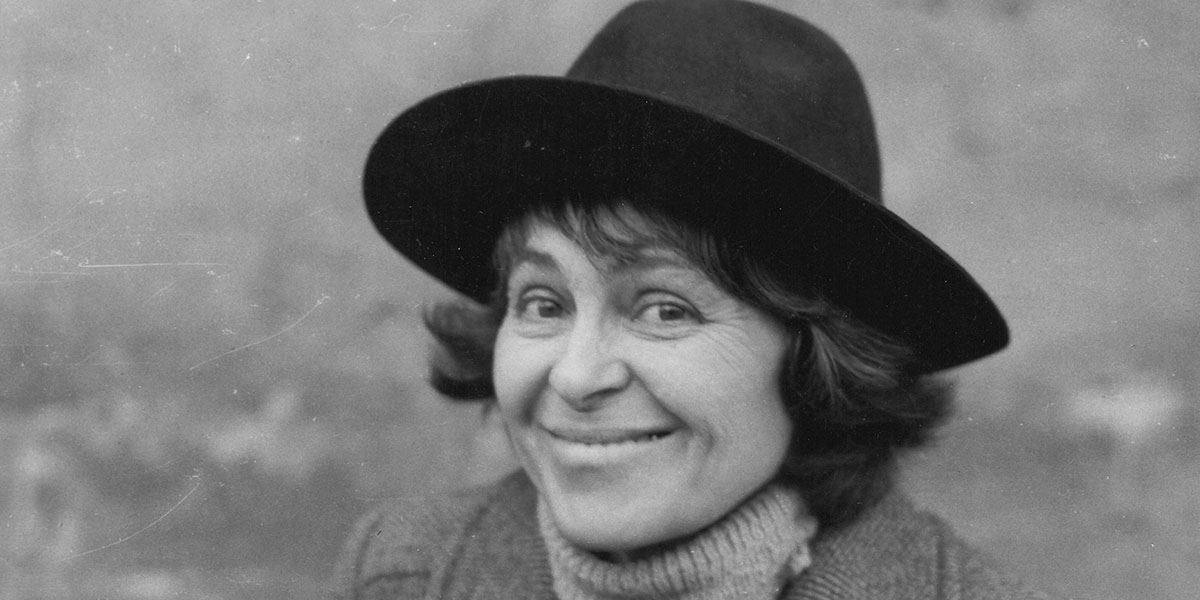Filmmaker Mark Cousins Explores Unsung Women of Film in New Doc
By Kathy A. McDonald
LOS ANGELES (Variety.com) – Mark Cousins is captivated by film. The director-film historian’s 15-hour documentary “The Story of Film” traversed the globe for a comprehensive look at cinema as an art form. His latest feature documentary, “The Eyes of Orson Welles,” digs into helmer-actor Orson Welles’ highly visual world, exploring his now legendary life and work. And debuting at Venice Classics Documentary Film section (it also played for press and industry at Toronto), a four-hour peek at Cousins’ next docuseries: “Women Make Film: A New Road Movie Through Film,” a 16-hour voyage covering the mostly omitted and unrecognized contribution of women directors. Executive produced and narrated by Tilda Swinton (later episodes are narrated by Jane Fonda, whom Cousins lauds as “a dream collaborator”), the series aims to challenge the ignorance surrounding women filmmakers.
Edited as a master class, the cinematic lesson features only female teachers. Forty thematic chapters answer 40 questions on how films are made from dissecting topics like openings to tone to believability. Scenes from works by Hollywood’s established, although still relatively few, women directors (Kathryn Bigelow, Angelina Jolie, Dorothy Arzner, Barbara Kopple) are intercut with the familiar (Agnes Varda, Claire Denis) and the less-championed (Poland’s Wanda Jakubowska).
As Swinton points out in episode one, “Film history is sexist by omission.” Cousins and his collaborators intend to revise the record. Before the Venice premiere, he answered a few questions via email. “Women Make Film: A New Road Movie Through Film,” is produced by Glasgow’s Hopscotch Films; the U.K.’s Dogwoof is handling international sales.
What inspired you to delve into the topic of women directors?
As a boy I fell in love with Hollywood cinema and mainstream movies: “Star Wars,” “Jaws,” “Grease,” etc. but in my 20s I started to ask, which great films and directors I hadn’t heard of. This led me to African movies and to making “The Story of Film.” Since then, I’ve been asking the same question everywhere I go in the world: Who are your great women filmmakers?
The answers have been revealing. In Albania I saw the movies of Xhanfize Keko, from Bulgaria I heard of Binka Zhelyazkova. At the same time, like many others, I saw, for example, histories of Polish cinema in which no woman director was included, or of Japanese cinema without the brilliant Kinuyo Tanaka. So the pleasure of discovery of these filmmakers became mixed with the anger at the lack of level playing field, the unfairness of their being forgotten. Admiration and fury make good rocket fuel.
How much research was involved? How did you manage all the source material?
We had my original long list of films I’d seen, to which we added a new list of films we wanted to see. Assistant producer Sonali Bhattacharya, editor Timo Langer and I watched these addition films for many months. I knew from the start that the film would be about the work, the films, the scenes, not theoretical, not about the female or male gaze, not about the lives of the directors. Those are all valid approaches, but we wanted to do something simpler. We wanted to say, in the era of #MeToo, “this is the work of the great women directors on whose shoulders we stand.” Our film is all about their craft.
I came up with 40 themes, 40 chapters, again really practical: How do you start a film? How do you set its tone? How do you introduce a character? How do you do a great tracking shot? Later chapters are about work, parenthood, home, politics, sex, sci-fi, comedy, death, love and dance.
When we were watching the films, we were looking for great scenes that would illustrate these themes. We wanted to show how these directors innovated, used the medium of film well, or told stories in skillful ways. To be honest, we wanted to surprise audiences with the quality of the work, and make them ask themselves, “Why haven’t I heard her name?”

